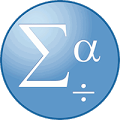
SPSS Statistics is a software package used for interactive, or batched, statistical analysis. Long produced by SPSS Inc., it was acquired by IBM in 2009. Current versions have the brand name: IBM SPSS Statistics.

SciPy is a free and open-source Python library used for scientific computing and technical computing.

R is a programming language and free software environment for statistical computing and graphics supported by the R Foundation for Statistical Computing. The R language is widely used among statisticians and data miners for developing statistical software and data analysis. Polls, data mining surveys, and studies of scholarly literature databases show substantial increases in popularity; as of January 2021, R ranks 9th in the TIOBE index, a measure of popularity of programming languages.
Mathematical software is software used to model, analyze or calculate numeric, symbolic or geometric data.
Statistica is an advanced analytics software package originally developed by StatSoft and currently maintained by TIBCO Software Inc. Statistica provides data analysis, data management, statistics, data mining, machine learning, text analytics and data visualization procedures.
Bioconductor is a free, open source and open development software project for the analysis and comprehension of genomic data generated by wet lab experiments in molecular biology.
S-PLUS is a commercial implementation of the S programming language sold by TIBCO Software Inc.
EViews is a statistical package for Windows, used mainly for time-series oriented econometric analysis. It is developed by Quantitative Micro Software (QMS), now a part of IHS. Version 1.0 was released in March 1994, and replaced MicroTSP. The TSP software and programming language had been originally developed by Robert Hall in 1965. The current version of EViews is 12, released in November 2020.

MedCalc is a statistical software package designed for the biomedical sciences. It has an integrated spreadsheet for data input and can import files in several formats.
RATS, an abbreviation of Regression Analysis of Time Series, is a statistical package for time series analysis and econometrics. RATS is developed and sold by Estima, Inc., located in Evanston, IL.

GeoDa is a free software package that conducts spatial data analysis, geovisualization, spatial autocorrelation and spatial modeling.
lumi is a free, open source and open development software project for the analysis and comprehension of Illumina expression and methylation microarray data. The project was started in the summer of 2006 and set out to provide algorithms and data management tools of Illumina in the framework of Bioconductor. It is based on the statistical R programming language.

SigmaStat is a statistical software package, which was originally developed by Jandel Scientific Software in the 1980s. As of October 1996, Systat Software is now based in San Jose, California. SigmaStat users have the ability to compare effects among groups. This includes before and after or repeated measure studies. The users can also conduct survival analysis, analyze rates and proportions, perform regression and correlation analysis and calculate power and sample size. The program uses a wizard based interface which asks the user questions about the project and its data. After a test is run, the user receives a detailed report that interprets the results.
NMath is a numerical package for the Microsoft .NET Framework. It is developed by CenterSpace Software. Version 1.0 was released in March, 2003 as NMath Core. The current version is called NMath 7.1, released in December, 2019.

CrimeStat is a crime mapping software program. CrimeStat is Windows-based program that conducts spatial and statistical analysis and is designed to interface with a geographic information system (GIS). The program is developed by Ned Levine & Associates under the direction of Ned Levine, with funding by the National Institute of Justice (NIJ), an agency of the United States Department of Justice. The program and manual are distributed for free by NIJ.
Free statistical software is a practical alternative to commercial packages. In general, free statistical software gives results that are the same as the results from commercial programs, and many of the packages are fairly easy to learn, using menu systems, although a few are command-driven. These packages come from a variety of sources, including governments, nongovernmental organizations (NGOs) like UNESCO, and universities, and are also developed by individuals.
Design–Expert is a statistical software package from Stat-Ease Inc. that is specifically dedicated to performing design of experiments (DOE). Design–Expert offers comparative tests, screening, characterization, optimization, robust parameter design, mixture designs and combined designs. Design–Expert provides test matrices for screening up to 50 factors. Statistical significance of these factors is established with analysis of variance (ANOVA). Graphical tools help identify the impact of each factor on the desired outcomes and reveal abnormalities in the data.
R packages are extensions to the R statistical programming language. R packages contain code, data, and documentation in a standardised collection format that can be installed by users of R, typically via a centralised software repository such as CRAN. The large number of packages available for R, and the ease of installing and using them, has been cited as a major factor in driving the widespread adoption of the language in data science.






